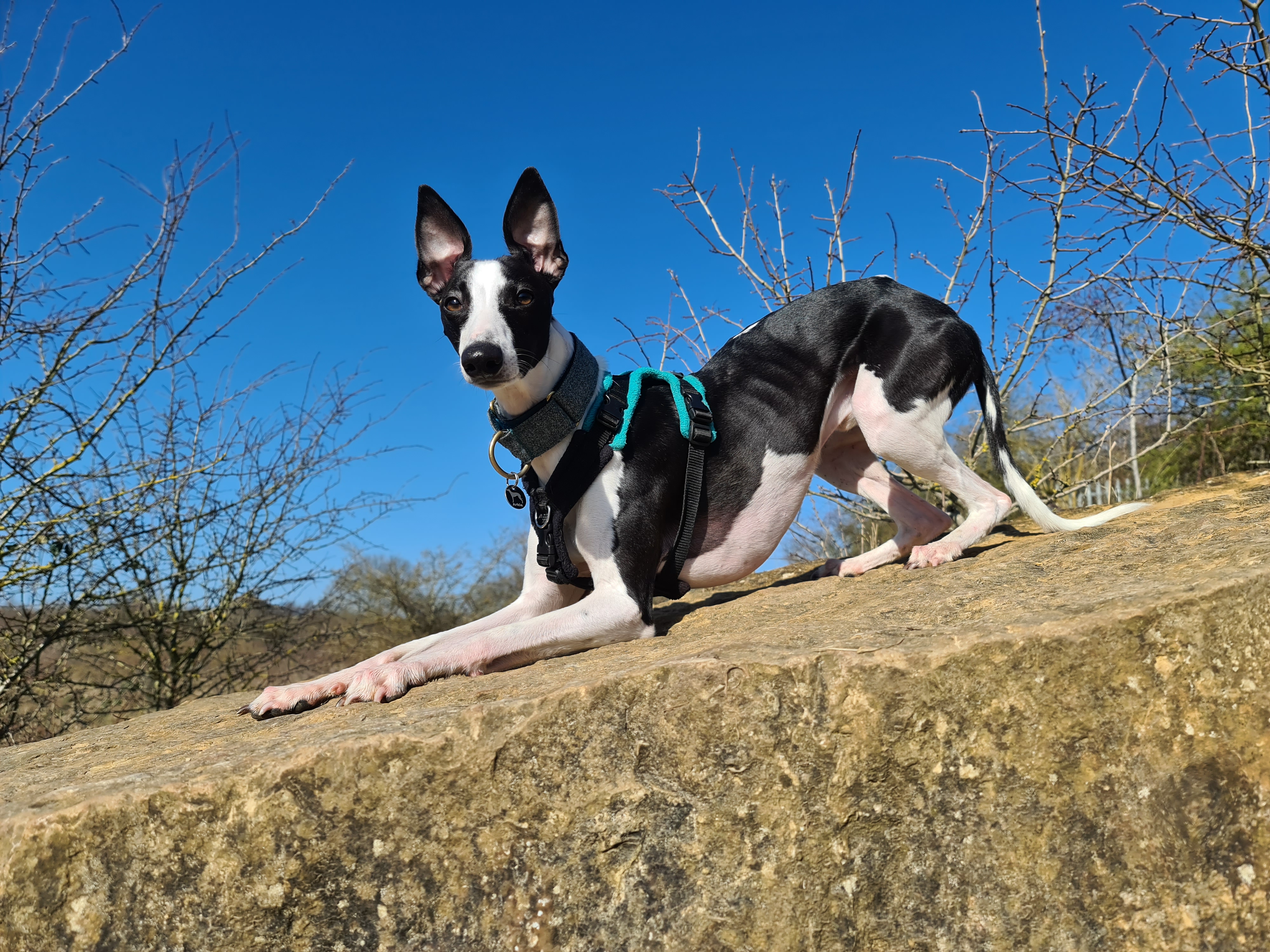Welcome To The Blog
Here you will find tips for training your Whippet as well as musings from my work as a trainer & behaviourist.
This includes training tips, multi dog household insights, reactivity, recall and focus!
I will also update this blog with updates on Arkle with his behaviour and health for those who have followed his journey!


Dog Reactivity Myths | Whippets and Sighthounds
Dogs who bark and lunge at other dogs or people are often very worried dogs. It can be a really big challenge to live with a reactive dog who is struggling with other dogs or people when out on walks. It is embarrassing for us as people assume we just haven't trained our dogs (which is simply never the truth!) People make a lot of assumptions about why dogs bark and lunge, most of which are hugely incorrect. There are a lot of myths out there too which don’t help. So we are going to myth bust in this blog and present facts!
Myth - You aren’t firm enough with your dog

I hear this one very frequently of late. People contacting me with reactive dogs, under the impression that it is because they were “too soft” with their dogs or not firm enough. The reality is that reactivity has very little to do with rules or firmness. Reactivity is generally an emotional response, this means that they are doing it as an "automatic reaction" from a place of feelings. Such as fear, frustration or similar.
Those fears needs addressing to ensure the dog becomes more confident. Being “firm” or harsh often has the opposite effect and can hugely intensify those feelings creating a stronger reaction, and in sighthounds trying to punish them can also cause "redirected aggression" that. Reactivity training is something that requires the support of an expert in dog behaviour, who can read their body language and help them to learn to manage their big feelings.
Myth - Your rescue must have been abused

Alot of people assume their reactive rescue dog must have been abused if they are nervous, and jumpy. However this isn’t strictly true. The dogs reactivity could have been a reason for surrender, or they might have had a bad experience with their trigger or even simply poor genetics. Sometimes there is no obvious reason too.
Its important not to dwell on a rescue dogs past, instead focus on their future and how you can work together as a team. Attaching a label of being abused can skew our perception of them and lead us to unintentionally treat them differently. Most reactive resceue dogs I work with are often reactive due to incorrect socialisation, trauma or feeling insecure.
❎Myth- Your dog is protecting you.

Dogs are masters of self preservation in the main (sorry!). They tend to react to help themselves cope with a stressful situation, rather than to help you. While it is true, certain breeds might display guarding instincts or protection in the right circumstances, if a dog is regularly reacting to triggers, it is unlikely to be about you. Your dog is more concerned about themselves and how they can manage that situation. It is our job to protect and support them with their big feelings, providing less stressful situations and creating new associations.
❎Myth- Your dog needs socialisation

Reactive dogs who are anxious, or learning appropriate manners do NOT need to be “socialised” around their triggers in a traditional sense. In that getting them out and meeting dogs when they are overwhelmed is not going to socialise them, in fact it often does the opposite and creates more of an intense reaction as their feelings weren't heard.
The critical socialisation period ends when a dog is still a puppy, beyond that a dog who develops reactivity issues needs careful and considerate exposure to boost positive experiences. Often the worst thing you can do is take them on “pack walks” or offlead sessions. These will likely just flood your dog and make the issue worse, particularly with whippets and sighthounds who are prone to "shut down"
✅ Fact - Your reactive dog is having a hard time.

A reactive dog is one who needs a careful plan and action to help them learn that they don’t need to react to triggers, and they do not need to worry so much. They need patience and understanding. Short cuts will interrupt progress.
A modern dog trainer or behaviourist will be able to help you learn to read your dog, make plans to succeed and help you in your progress to help both you and your dog become more confident.
Join the hundreds of sighthounds owners worldwide getting Sighthound specialist support for their dogs
https://whippetwonders.co.uk/reactivity

